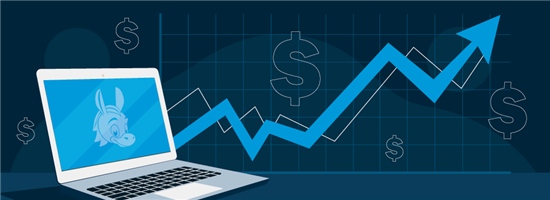Best Alternative Investment Platforms
There's more to investments than just the stock market. Discover how you can grow your money through alternative assets here.
 |
Here are the best alternative investment platforms:
- Fundrise for Real Estate Funds
- Arrived for Rental Investments
- Masterworks for Artworks
- Vinovest for Fine Wine & Whisky
- JM Bullion for Gold
- Rally Rd. for Collectibles
- Coinbase for Cryptocurrency
- Percent for Private Credit
- AcreTrader for Farmland
- Equitybee for funding stock options
- Prosper for P2P lending
- Crowdstreet for Commercial real estate
- Public for fractionalized assets
You don't need to invest a lot to get started in real estate, art, or rare whisky.
Thanks to innovation, these exclusive assets are now accessible to retail investors. Some even only require a minimum of $10.
In this list, find out which alternative assets should you try to diversify your portfolio. You will also learn about the minimum requirements, holding period, and profit model for each platform.
14 Best Alternative Investment Platforms
All investments carry a certain level of risk, but these alternative investment platforms can help you further manage that through diversification. Read on.
Yes, even institutional firms such as Blackrock promote investing in alternative assets to improve your overall returns in the long run. Most alternative assets act as insurance or hedge against the stock market as it is typically not affected by market volatility.[1]
Invest in Real Estate with $10+
- Only $10 minimum investment
- Get a diversified portfolio of real estate projects across the US
- Open to all investors
Invest in Private Companies
- Invest in pre-IPO companies through an EquityZen fund.
- $10,000 minimum investment
- Available to accredited investors only
Invest in High-Growth Startups
- Access Hundreds of Startups at Past Valuations
- Diversify Your Portfolio with High Growth Startups
- Invest in a Previously Inaccessible Asset Class
Fundrise: Best For Private Real Estate Funds
| Assets | Real Estate, Private Credit, Venture |
|---|---|
| Minimum Deposit | $10[2] |
| Open for Non-Accredited Investor? | Yes |
| Management Fee | 0.85% annually (Real Estate Fund)[3] |
Fundrise is an alternative investment platform that offers real estate, private credit, and venture capital funds. They're well-known for their Flagship Real Estate Fund, which enables anyone to invest in fractional real estate for only $10.
You can earn money in two ways:
- Quarterly dividends
Receive money quarterly based on the properties' rent income. - Share value appreciation
Potentially earn from the increase of the fund's price (NAV per share) in the future.
When you invest in Fundrise, your funds are automatically diversified into various real estate assets. If you prefer to customize your portfolio, you may opt to subscribe to the Fundrise Pro plan.
The Flagship Fund does not have any penalty fees if you liquidate your shares. But if you request withdrawals within the first 5 years for eREIT or eFund, you may need to pay 1% fee.[4] In general, the Fundrise shares you own are designed to be held long-term.
Any permanent U.S. resident over the age of 18 can invest here. You don't have to be an accredited investor to start. Due to regulations, they do not accept investments from US territories yet.
Invest in Real Estate with $10+
- Only $10 minimum investment
- Get a diversified portfolio of real estate projects across the US
- Open to all investors
Arrived: Best For Rental Investing
| Assets | Real Estate Rentals (Residential and Vacation) |
|---|---|
| Minimum Deposit | $100[5] |
| Open for Non-Accredited Investor? | Yes |
| Management Fee | 0.15% quarterly (Residences); 5% of gross rents (Vacation Rentals); 0.25% quarterly (SFR Fund),[6] sourcing and property mgmt. fee charged separately[7] |
Arrived is a real estate investing platform that focuses on individual rental properties. Through this platform, you can co-own rental homes such as single-family residences or vacation rentals (Airbnb, VRBO, etc.). The minimum investment is only $100.
The main difference between Arrived vs Fundrise is that you can directly choose individual properties to fund, albeit the number of properties is limited. You can also closely see how the vacation rental is managed through Airbnb reviews.
You also earn here in two ways:
- Monthly dividends
Get dividends monthly based on the rental's cashflow. - Property value appreciation
Earn pro-rated gains from the increase of the rental home's market value when it is sold after the holding period (usually 5 to 15 years).
Arrived also has its version of a private REIT. It's called Arrived SFR Fund, but it was only launched last November 2023 and does not have historical returns yet.
Your investment is directly tied to when the actual property gets resold. So, for individual properties, you cannot liquidate your shares at all in Arrived until the holding period ends.
Any U.S. resident within the 50 states and over the age of 18 can invest in Arrived. Non-accredited investors are also accepted.
Invest in Rental Homes with $100+
Browse rental home investments for free. No bank account required
Masterworks: Best For Artworks
| Assets | Contemporary Art |
|---|---|
| Minimum Deposit | $15,000 (Negotiable through call) [9] |
| Open for Non-Accredited Investor? | Yes |
| Management Fees | 1.50% annually; 20% profit share on artwork sale[10] |
Masterworks securitizes blue-chip contemporary art, which enables anyone to partially own million-dollar artworks for just a minimum of $15,000.
That minimum is a bit high compared to others in this list, but considering that the artworks they buy are like Basquiat's Pollo Frito (which is valued at $36.7 million), that's a decent start.
Masterworks applies a buy-and-hold strategy. They typically hold the artwork for 3-10 years before reselling it to top collectors in the art market. So you will only get your pro-rated profit once it has been sold after a few years.
If you feel like selling your shares early, you can do so in the secondary market, where you trade with your fellow art collectors. However, there's no assurance that you will be able to sell it immediately as it still depends on the market demand.
Despite the high initial investment, investing in Masterworks is open to all global investors.
Vinovest: Best For Wine & Whisky
| Assets | Fine Wine & Whisky |
|---|---|
| Minimum Deposit | $1,000 for wine,[11] $1,750 for American whisky[12] |
| Open for Non-Accredited Investor? | Yes |
| Management Fees | 2.25% - 2.85% annually, depending on the plan[13] |
Vinovest assists you in building your investment-grade wine and whisky portfolio. You own your wine and whisky 100%, and they can even help ship your bottles to your doorstep if you want to drink it.
Just like art, you only need to buy and hold. Here's how it works:
- Wine
Deposit at least $1,000 to start investing. Master sommeliers help you evaluate wines and build your portfolio within 2-3 weeks. Vinovest will take care of the wine insurance and storage until you decide to sell it at peak value later.Vinovest has four plans: Starter, Plus, Premium, and Grand Cru. The higher your minimum balance, the lower you have to pay for annual fees. Starting with the Premium plan, you will be able to access rare, auction-only wines.
- Whisky
Fund your account at least $1,750 to buy one whiskey cask. Vinovest will source, authenticate, insure, and store your whiskey for you. Then, hold that whisky for 2-4 years and ask Vinovest to sell it for you.
Anyone around the world can invest in Vinovest as long as they are of legal drinking age. However, Vinovest is not available to the embargoed countries: Cuba, Iran, North Korea, Syria, and the Crimea region of Ukraine.[14]
Jm Bullion: Best For Gold
| Assets | Precious Metals |
|---|---|
| Minimum Deposit | Not applicable |
| Open for Non-Accredited Investor? | Not applicable |
| Management Fees | Not applicable |
JM Bullion is an online marketplace for precious metals such as gold, silver, platinum, and palladium. If you want to use gold as insurance against economic uncertainty, you can buy physical products here and then have them delivered to your doorstep.
Products you can buy start at 1/10 gram and its retail price fluctuates real-time along with the market. To give you an idea, the price of gold ranged between $1,804 and $2,145 per ounce in 2023.
It has one of the best and most competitive pricing in the industry. It offers free shipping in the US for orders above $199. They also have discounts for military personnel.
In addition, you'll receive a 4% discount for payments made via bank wire, ACH, or paper check, and a 3% discount for Bitcoin payments.[15]
Rather than an investment, gold is often used as insurance against US inflation. It is also regarded as a safe haven in case the dollar collapses. Analysts recommend only allocating about 5% - 10% of your portfolio to gold.
Rally Rd: Best For Collectibles
| Assets | Sports memorabilia, books, cards, comics, cars, NFTs, etc. |
|---|---|
| Minimum Deposit | None, you can buy the asset directly[16] |
| Open for Non-Accredited Investor? | Yes, provided that the investment amount does not exceed 10% of the annual income[17] |
| Management Fees | None, sourcing fee charged separately |
At Rally Rd, you can buy shares of rare collectibles such as sports memorabilia, books, comics, cards, and more. Once you do, you also get shares of the LLC company that holds it.
You can earn money with these securitized collectibles if the value of the item rises in the future. You can also receive dividends if the company earns more money than its operating expenses.
Investing in Rally Rd. is often treated as a long-term investment, but you have the option to sell your shares early in the secondary market after 90 days. However, there's no assurance that your order can be filled.
When it's time to sell the item, shareholders will vote if they want to exit. As of Jan 2024, there are already 57 assets sold, one of which gained as much as +973.6%[18] in value.
Rally Rd. is currently open for U.S. investors only.
Coinbase: Best For Cryptocurrency
| Assets | Cryptocurrency |
|---|---|
| Minimum Deposit | Initial $50 recommended[20] |
| Open for Non-Accredited Investor? | Yes |
| Management Fees | Not applicable, commissions charged separately |
Coinbase is an online cryptocurrency exchange. Here, you can buy and sell crypto, stake coins, buy NFTs, trade derivatives, and more.
It currently offers over 200 crypto assets for trading.[21] It also has a crypto wallet (Coinbase Wallet) where you can safely store and manage your coins.
There are various ways to earn in the crypto economy, but the most common thing to do is buy undervalued coins during the bear market and sell them during the peak of the bull market.
The minimum required may vary depending on the crypto asset. However, they suggest an initial deposit of $50 to auto-verify your account.
They offer a Coinbase Visa debit card that lets you earn crypto as a reward when you spend. You can either use USD or crypto to pay with this card. It can be used anywhere Visa cards are accepted.
Percent: Best For Private Credit
| Assets | Private Credit |
|---|---|
| Minimum Deposit | As low as $500[22] |
| Open for Non-Accredited Investor? | No |
| Management Fees | None (10% of APY charged per interest payment instead); 1% for Blended Notes[23] |
Percent is a private credit investment platform for retail accredited investors. Typically, investments in private credit offer a higher yield and shorter duration such as 1 month.
If you're not familiar with private credit, it is when a non-bank lender provides loans to businesses that do not have access to traditional bank financing. These lenders usually include institutions and family offices.
With Percent, retail investors can now invest in private credit for passive income as long as they are accredited. Those who are eligible can specify the terms they want to invest in and can start for as little as $500.
The main risk in this type of asset is if companies cannot pay back the money to lenders. However, as of October 31, 2024, Percent has a default rate of only 2.55%. This means that out of the 94 borrowers, only 11 offerings have defaulted.[24]
Percent also offers a private fund set up by a General Partner, which provides an opportunity for investors to become a Limited Partner. However, the minimum amount ranges between $50,000 to $100,000.[25]
Individuals whose net worth is over $1 million excluding their primary residence, income is over $200,000 annually for the prior 2 years, Series 7, 65, and 82 license holders, family clients of a family office, management of the company selling the security, and knowledgeable employees of private funds.[26]
Acretrader: Best For Farmland
| Assets | Farm land |
|---|---|
| Minimum Deposit | $15,000 - $30,000, depending on total land size[27] |
| Open for Non-Accredited Investor? | No |
| Management Fees | 0.75% of overall farm value annually[28] |
AcreTrader is a leased farmland investment platform. You can buy shares of the farmlands through an LLC created by AcreTrader.
At AcreTrader, you can earn in two ways:
- Cash yield
Dividend-like annual payout to investors in December based on the rent paid by tenant farmers. - Share price appreciation
If the land value increases over time, so does the price of your AcreTrader shares.
Farmlands in AcreTrader have a target hold period of 3-10 years. However, some properties were only held for as short as 1.4 years, as it has already returned decent gains.
As of Jan 2024, the realized annual rate in their exited investments ranged from 12.4% to 15.8%.
Any US legal resident will be able to invest in AcreTrader, but it is limited to accredited investors. The minimum deposit typically starts at $15,000 to $40,000, depending on the total land size.[29]
Equitybee: Best For Funding Stock Options
| Assets | Employee stock options |
|---|---|
| Minimum Deposit | $10,000[30] |
| Open for Non-Accredited Investor? | No |
| Management Fees | None; Brokerage fee 5%; Carry Fee 5% |
At Equitybee, you can access the private equity market by funding employee stock options. With just $10,000, you could get exposure to shares of private companies backed by venture capitalists.
Startup employees usually receive stock options as part of their compensation. These stock options can only be exercised upon an exit event such as an IPO or M&A. The terms of employee stock options are typically favorable to the buyer.
However, exercising stock options can be quite costly. Not all employees have the money to exercise stock options and this is where you enter as an investor.
In exchange for providing cash to the employee, you receive a portion of the shares or cash when they exercise the stock option later at an exit event.
While Equitybee does not charge a management fee, you must pay a 5% brokerage fee and a 5% carry fee on the remainder of the original investment amount. Investing here is also limited to accredited investors.
Employee stock options give employees the right to buy company stock at a set price in the future. Companies use these as a form of compensation instead of giving employees direct shares of stock. The options allow employees to profit if the stock price goes up. The company sets specific terms like the purchase price and time period in a contract with the employee.
To exercise your stock option is to buy the share at the agreed price.
Prosper: Best For P2P Lending
| Assets | Peer-to-peer (P2P) lending |
|---|---|
| Minimum Deposit | $25[31] |
| Open for Non-Accredited Investor? | Yes |
| Management Fees | None; service fees apply separately[32] |
Prosper is a personal loan marketplace where investors can directly fund loan requests from borrowers. The minimum investment for each "note," or portion of each loan, is $25.
By funding borrowers' loans, you can receive monthly interest payments for the next 2, 3, 4, or 5 years. Each loan has a different risk rating. You can invest in either AA (low risk, low return) or HR (high risk, high return) loans.
When borrowers need funds, they place a loan request on Prosper's platform. As an investor, you can fund loan requests that match your risk profile. You can invest in these requests manually or automatically through Prosper's Auto-Invest tool.
Keep in mind, however, that P2P loans are typically unsecured. This means that when you decide to lend money, you don't hold any collateral in case the borrower defaults.
Prosper doesn't charge any management fee, but you do need to pay a 1% annual loan servicing fee for each payment you receive from the note. Prosper is currently limited to US residents in select states only.
CrowdStreet: Best For Commercial Real Estate
| Assets | Commercial Real Estate (CRE) |
|---|---|
| Minimum Deposit | May vary, but typically starts at $25,000[33] |
| Open for Non-Accredited Investor? | No |
| Management Fees | 1% - 2% of gross revenues or equity annually[34] |
CrowdStreet is a commercial real estate investing platform for accredited investors. The minimum investment is $25,000.
There are two ways to get paid in CrowdStreet:
- Cash distributions
Get potential cash distributions if there's income from tenant rent. Each deal has different terms for the distribution; it could be monthly, quarterly, or none at all. - Share of property's final sale
If the market price of the CRE property increases, you'll receive pro-rated income once it's sold or refinanced after the holding period.
CrowdStreet offers single-property deals if you want to buy individual properties. If you want to invest in several properties in one go, funds from sponsors or CrowdStreet Advisors are available.
As of Oct 2024, CrowdStreet Marketplace's total realized IRR is 12.2%, with an average holding period of 3.4 years. Some properties report a total loss, so it's important to diversify.[35]
Each deal has a different fee structure. In general, the asset management fee is 1% to 2% of gross revenues or equity annually. The property management fee is around 3% to 4% of gross revenues. Other fees for acquisition, construction, and development also apply.
Public: Best For Fractionalized Assets
| Assets | Art, Collectibles, and NFTs |
|---|---|
| Minimum Deposit | One share or $5 for fractional shares |
| Open for Non-Accredited Investor? | Yes |
| Management Fees | None, commission charged separately[36] |
Public is a fractional investing platform offering multiple assets, from traditional to alternative ones. There's no account minimum to start investing in Public.
It securitizes art, collectibles, and NFTs through a "corporation" so you can easily invest in alternative assets. For example, Public offers fractional investment in Banksy's Police Car, which is currently listed at $12.99 per share as of 10/28/2024.[37]
Buying shares of alternative assets on Public is similar to how stockbrokers work. You select an asset, purchase at least one share, and hold it. If the asset's price increases in the future, you can sell your shares back to earn money. If it decreases, you lose money.
At Public, there's no accreditation required. You can sell your shares anytime after the initial offering period as long as there's demand. The fee is 2.5% for each buy and sell transaction.
What Is an Alternative Investment Platform?
Alternative investment platforms are entities that offer securities beyond traditional assets such as stocks, bonds, and cash. Alternative assets include real estate, art, fine wine, rare whisky, collectibles, farmland, precious metals, cryptocurrency, etc.
Historically, most alternative assets require large initial investments. This prompted an innovation in the space by securitizing such assets, thereby opening the industry to smaller retail investors.
Newer financial products such as cryptocurrency are also popular alternative assets, even if they lack regulations and are very risky.
Certain alternative assets such as real estate and blue-chip art are considered low risk if managed well, as their value gradually increases over time.
Examples of Alternative Investments
There are many examples of alternative investments, and here are just a few:
- Real Estate
Real estate investments go beyond owning actual properties.
You could invest in farmlands, residences, rental units, or commercial properties through crowdfunding or fractionalization. You could also purchase funds such as public or private REITs to invest in a diversified portfolio of real estate properties in one go.
Though upfront costs could be quite expensive, real estate is often seen as the best alternative to the stock market. It's tangible, its value increases over time, and it has tax write-offs. If you own rental units, you also get monthly cash flow.
- Art
Typically, art investing means buying physical artworks from auctions or galleries. As fine art pieces are often valued in the millions, platforms like Masterworks make it easier for you to invest in fractionalized fine art.
But not all artworks are expensive. Multiple underground galleries feature rising artists. So, if you buy artwork from a rising artist and they become successful, there's a good chance the value of that piece will also increase.
Collecting art is a popular hobby among investors because it holds its value over time. Some artworks may not see strong price appreciation over time, but it is rare for an artwork to lose its value.
- Precious Metals
The common types of precious metals investments are gold, silver, platinum, and palladium. They're often offered in bars, ingots, or coins. If you want the metal with the highest level of purity, look for bullion instead of collectibles or numismatic coins.
While you could invest in the physical metal itself, you could also buy funds or ETFs with exposure to these precious metals for diversification. This way, you don't have to worry about storage.
Precious metals, especially gold, are often seen as a good store of value, an alternative to currencies. This is why even though it's not an income-generating asset, investors still allocate a portion of their portfolios to precious metals.
- Collectibles
Collectibles are items considered valuable due to their rarity or cultural significance. Common examples include sports memorabilia, trading cards, toys, and comics.
Similar to other alternative assets, collectibles are often fractionalized for easier investing through online platforms. While valuing collectibles can be subjective, many collectors have profited from the price appreciation of these items.
- Commodities
Commodities are basically natural resources that you can invest through the financial markets. This also includes precious metals, but it's mostly about other items such as energy resources and food products.
Examples include oil, natural gas, wheat, coffee, and lumber. Many funds offer diversified exposure to commodities and can be easily purchased through brokerage platforms.
- Private Equity
When companies have not yet done an IPO or are not yet listed on the stock market, they're considered private companies. At this stage, the average investor cannot easily buy their shares. Access to private stocks is typically limited to accredited investors, venture capitalists, and institutional investors.
Investing in private companies remains popular because of the potential to experience explosive gains. Although not always true, some companies have lower valuations when they're still private companies. Once they go public, that usually increases, which gives you a chance to exit with a higher share price.
Accredited investors can use secondary platforms such as EquityZen or Hiive to access private companies. Funding employee stock options through Equitybee can also expose your portfolio to private equity. Additionally, some funds offer holdings in a diversified portfolio of private companies.
- Private Credit
When borrowers can no longer get funding through traditional bank loans, they reach out to private lenders. Private credit products could range from consumer loans to corporate loans.
Historically, the private credit business was almost exclusively for institutions and family offices. Now, with platforms such as Percent, retail accredited investors can also invest in this market.
Private credit is one of the most lucrative alternative investments as it offers high returns in a short time. However, it's also much riskier. It wouldn't be surprising if some deals went into default.
- Lending
Similar to private credit, peer-to-peer lending provides alternative credit access for borrowers. With P2P lending, you directly transact with the borrower through an online P2P lending platform.
P2P lending is one of the riskiest investments because you can lose all your money through default.
- Cryptocurrency
Cryptocurrencies are basically digital currencies that aim to replace traditional currencies in the long run. They run on a public ledger called blockchain.
However, unlike traditional currencies, cryptocurrencies are more volatile, and that volatility creates many opportunities for investors and traders to profit.
The most common strategy is to buy and HODL (hold on for dear life) popular coins such as Bitcoin and Ethereum. But you could also stake coins, be a liquidity provider, or trade spot or futures.
- Non-Fungible Tokens (NFTs)
NFTs is similar to cryptocurrency in the sense that it's using blockchain technology. NFTs represent your ownership of an item in the digital world.
It's commonly associated with digital art, but basically anything can have an NFT, even real estate.
- Fine Wine and Rare Whisky
The most sought-after wines and whisky are luxury assets that have gained decent returns historically. Even if you're not that familiar with this asset, sommeliers and spirits professionals on platforms like Vinovest can help you identify which ones are good investments.
At Vinovest, you actually own the wine bottle or the whisky cask itself. They just store it for you until you plan to sell it. You can also request to have the bottles shipped to your doorstep if you want.
Traditional investments are based on securities like stocks, fixed income, or cash. Anything outside of that is considered an alternative investment. Unlike traditional investments, most alternative investments are considered high risk due to the complexity of the underlying assets. Plus, alternative investments have less regulatory oversight compared to traditional ones.
Pros Of Alternative Investment Platform
Despite the risks involved, here are some reasons why you should still consider investing in alternative assets:
- Potential for high returns
The annual average return in the stock market is about 11% over the last 10 years.[38] You could get the same or even higher annual returns through some of these alternative assets. - Passive investment
Platforms that offer securitized alternative assets typically do all the hassle of asset management for you. Therefore, you don't need to monitor your investments closely. Just wait for updates from the platform. - Diversification
Alternative assets are usually uncorrelated with the stock market and with each other. They rely entirely on the performance of the underlying asset, which makes them great for reducing risk in your portfolio.
Alternative assets can indeed be rewarding as long as risks are properly managed.
Cons Of Alternative Investment Platform
Investing in alternative assets is a great way to diversify, thereby reducing your risk against stock market financial market crashes.
However, there are a few challenges for investors:
- High fees
In exchange for convenience, platforms charge an annual management fee or commissions. Manage your expectations and expect deductions on your projected earnings. - Illiquid investment
Most securitized assets follow the buy-and-hold strategy and require long-term holding periods. Avoid investing in alternative assets if you require cash immediately (unless you choose private credit). - Lack of historical data
A downside of innovative projects is that there's not enough historical data to back up their returns. Most funds were launched after the 2008 crisis, so it's difficult to say how these modern funds will perform during recessions that endure for a long time. - Compliance issues
While most platforms in this list register their securities with the SEC, it's not new to see some of them being fined due to non-compliance. Also for cryptocurrency, the SEC still does not recognize any crypto exchange as registered despite its popularity among retail investors.
Things to Consider Before Investing
Before you invest in alternative assets, here are some factors that you should consider:
- Accreditation Status
Some investment opportunities are limited to accredited investors. When you sign up for a platform, you'll have to confirm your investor status first. - Budget
Each investing platform has a different minimum investment requirement. Some allow you to invest for as low as $10, while others may require $15,000. Confirm the minimum investment required before you invest in an asset. - Risk Tolerance
Each asset class has a different level of risk and volatility. Only invest money that you are willing to lose because it's common to see a 100% loss in some of these investments. - Willingness to Wait
Buy and hold is the investment strategy applied by most alternative investment platforms. This means your capital will be illiquid or locked in for a few years.If you plan to withdraw your money at any time, it may not be a good idea to invest in alternative assets unless it's private credit.
- Expected Returns
The higher the returns, the higher the risk. Some platforms let you select an offering based on expected returns. So if you choose an offering with a higher return, there's a higher chance of loss on that asset as well.
Methodology
First, we thought of the various risk appetites of investors. We have included both low-risk and high-risk alternative investment options to fit the needs of each investor.
To consider the different financial capabilities of investors, we looked for investments that are open to both non-accredited and accredited investors.
We also checked how each platform is structured. By choosing platforms that securitize assets through LLC, we could at least lower the risk for our readers by ensuring compliance with the SEC.
Lastly, we chose platforms that have a promising future despite the risks. This is why we did not include angel investing platforms, as these are mainly considered extremely high-risk and have no guaranteed returns, not even break-even.
Bottom Line
Investing in alternative assets can be a profitable endeavor, but it all depends on what type of asset you choose to put your money in.
Some assets are riskier than others. Some are not meant to be a main source of passive income, but more like insurance against economic uncertainty.
First, define how you want to diversify your portfolio. Then choose the assets that you want. You also have to consider if you are qualified to invest based on their minimum requirements.
References
- ^ Blackrock. Why should I consider alternative investments?, Retrieved 01/23/2024
- ^ Fundrise. What is the minimum initial investment?, Retrieved 01/23/2024
- ^ Fundrise. What are Fundrise's fees?, Retrieved 01/23/2024
- ^ Fundrise. Are there any costs associated with liquidating shares?, Retrieved 01/23/2024
- ^ Arrived. What is the minimum Initial Investment?, Retrieved 01/23/2024
- ^ Arrived. Single Family Residential Fund, Retrieved 03/17/2024
- ^ Arrived. How does Arrived make money?, Retrieved 01/23/2024
- ^ Arrived. Historic Returns From Investing In Rental Homes, Retrieved 01/23/2024
- ^ Masterworks. FAQ: Is there a minimum investment for Masterworks?, Retrieved 01/23/2024
- ^ Masterworks. FAQ: What are the fees associated with Masterworks?, Retrieved 03/17/2024
- ^ Vinovest. What Is The Minimum Amount That I Can Deposit At One Time?, Retrieved 03/17/2024
- ^ Vinovest. What Is The Minimum Deposit Amount?, Retrieved 03/17/2024
- ^ Vinovest. Pricing, Retrieved 02/05/2024
- ^ Vinovest. Can I Invest In Vinovest If I Don't Live In The US?, Retrieved 03/17/2024
- ^ JM Bullion. Payment Methods at JM Bullion, Retrieved 03/17/2024
- ^ Rally Rd. Home, Retrieved 01/23/2024
- ^ Rally Rd. Disclaimer: Offerings in Rally Entities, Retrieved 11/04/2024
- ^ Rally Rd. All Assets, Retrieved 01/23/2024
- ^ U.S. Securities and Exchange Commission. SEC Charges RSE Markets Inc. for Operating an Unregistered Securities Exchange, Retrieved 03/17/2024
- ^ Coinbase. Deposit USD on Coinbase Exchange, Retrieved 01/23/2024
- ^ Coinbase. Explore the cryptoeconomy (Tradable), Retrieved 03/17/2024
- ^ Percent. FAQ: What is the minimum amount of money I can invest?, Retrieved 01/23/2024
- ^ Percent. Broker-Deal Approval and New Fee Structure on Percent, Retrieved 01/23/2024
- ^ Percent. Understanding Percent's Historical Default Rate, Retrieved 01/23/2024
- ^ Percent. Private Credit Asset Classes on Percent, Retrieved 03/17/2024
- ^ U.S. Securities and Exchange Commission. Accredited Investor, Retrieved 03/17/2024
- ^ AcreTrader. FAQ: Is there a minimum investment with AcreTrader, Retrieved 11/04/2024
- ^ Acretrader. FAQ: What are the costs associated with using AcreTrader?, Retrieved 03/17/2024
- ^ AcreTrader. FAQ: Is there a minimum to invest with AcreTrader?, Retrieved 01/23/2024
- ^ Equitybee. FAQ, Retrieved 10/16/2024
- ^ Prosper. Is there a minimum investment required?, Retrieved 10/24/2024
- ^ Prosper. Are there any fees to invest through Prosper?, Retrieved 10/24/2024
- ^ CrowdStreet. Is there an investment minimum?, Retrieved 10/24/2024
- ^ CrowdStreet. Shining a Spotlight on Real Estate Sponsor Fees, Retrieved 10/24/2024
- ^ CrowdStreet. Marketplace Performance, Retrieved 10/24/2024
- ^ Public. Does Public charge any fees?, Retrieved 10/28/2024
- ^ Public. Banksy - "Police Car", Retrieved 10/28/2024
- ^ S&P Dow Jones Indices. S&P 500 , Retrieved 03/14/2024
Write to Stella Magay at feedback@creditdonkey.com. Follow us on Twitter and Facebook for our latest posts.
Note: This website is made possible through financial relationships with some of the products and services mentioned on this site. We may receive compensation if you shop through links in our content. You do not have to use our links, but you help support CreditDonkey if you do.
Fundrise, LLC ("Fundrise") compensates CreditDonkey Inc for new leads. CreditDonkey Inc is not an investment client of Fundrise.
|
|
|












